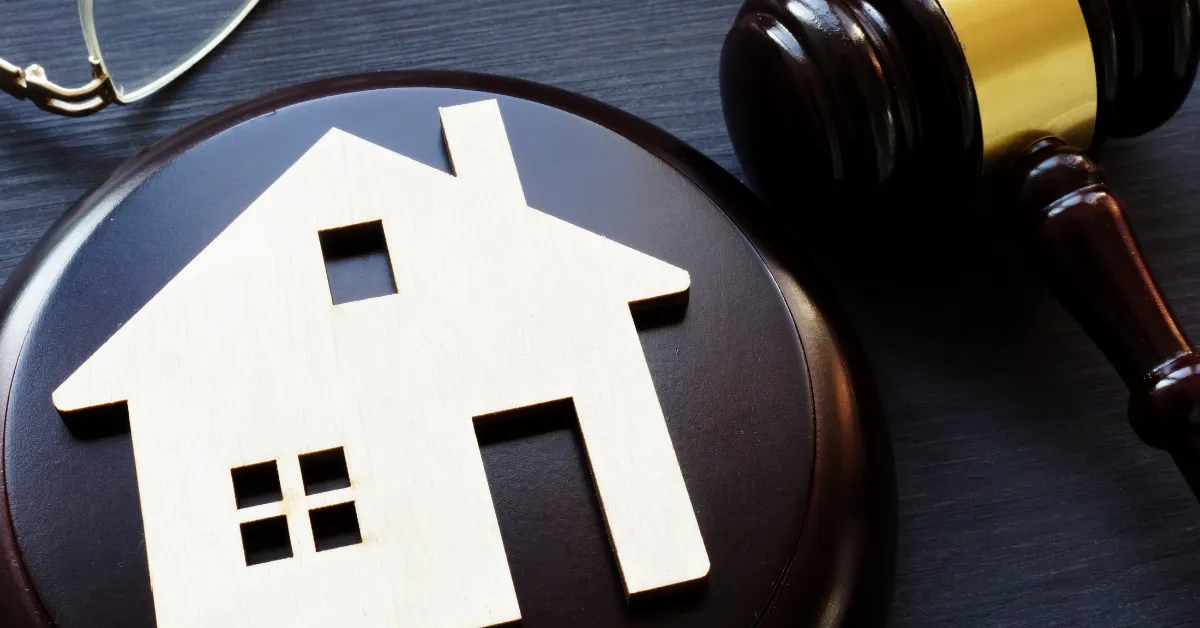A rental property manager handles the daily operations of rental properties. Their duties include tenant relations, financial management, and property maintenance.
Delving deeper into the world of real estate, a rental property manager stands as an essential figure, bridging the gap between property owners and tenants.
These professionals ensure properties remain profitable and in good condition, taking on the responsibility of advertising vacancies, screening tenants, collecting rent, and handling tenant issues.
Behind the scenes, they are also adept at managing budgets and keeping accurate financial records. Expert rental property managers navigate legal aspects of tenancy and property law, often coordinating with contractors for repairs and upgrades.
Their multifaceted role is key to seamless property operations, making them indispensable within the rental market.
Their success in maintaining a property’s desirability directly impacts the satisfaction of tenants and the return on investment for property owners.

Introduction To Rental Property Management
Welcome to the dynamic world of rental property management, the backbone of a thriving real estate rental market.
A rental property manager acts as the crucial intermediary between property owners and tenants, ensuring smooth operations and harmonious rental experiences.
They juggle a myriad of responsibilities, from maintenance schedules to tenant screening, rent collection to financial reporting.
The Evolution Of Property Management
Rental property management has undergone a significant transformation over time. With technological advancements, the landscape for managers is ever-evolving:
- From manual rent collection to online payment systems,
- Use of digital maintenance requests instead of paper forms,
- Implementation of property management software for efficiency boosts.
This evolution has made managing properties more streamlined and effective.
The Significance Of Rental Managers In Real Estate
Rental managers play a vital role in the success of real estate investments. They:
- Maximize occupancy rates keeping profits steady,
- Ensure timely rent collection and financial health of properties,
- Handle day-to-day operations, freeing up owners’ time.
Their expertise enhances property value while providing tenants with quality living standards.
Essentials Of Rental Property Management
Managing a rental property goes beyond just collecting rent. It involves a broad spectrum of responsibilities ensuring the property remains competitive and profitable.
Effective property management serves as a bridge between the landlord and the tenants, ensuring smooth operations and satisfied parties on both ends.
Qualities Of An Effective Property Manager
A truly effective property manager embodies certain qualities that set them apart. These include:
- Excellent Communication: Relays information clearly to both tenants and property owners.
- Organizational Skills: Keeps records neatly organized and up-to-date.
- Attention to Detail: Notices small issues before they become big problems.
- Time-Management: Balances multiple tasks efficiently.
- Customer Service: Offers supportive assistance to tenants and owners.
- Technical Savvy: Uses property management software effectively.
- Problem-Solving: Finds creative solutions quickly when issues arise.
Required Certifications And Education
Certain certifications and educational backgrounds give property managers the edge in the market. Key requirements often include:
| Certification | Description | Offered By |
| CPM (Certified Property Manager) | Signifies expert knowledge in financial and operational aspects of property management. | Institute of Real Estate Management (IREM) |
| RMP (Residential Management Professional) | Demonstrates experience and skill in residential property management. | National Association of Residential Property Managers (NARPM) |
| CAM (Certified Apartment Manager) | Indicates proficiency in managing apartment complexes. | National Apartment Association (NAA) |
Bachelor’s degrees in real estate, business administration, or finance are common among property managers. Some states also require licensing specific to property management.
Tenant Relations Management
Effective tenant relations management plays a pivotal role in the success of any rental property manager. It involves maintaining a positive connection with tenants, ensuring their satisfaction, and promptly addressing their concerns.
Mastering this area leads to high tenant retention rates, glowing property reviews, and less turnover headaches for property owners.
Marketing And Leasing Strategies
- Design appealing ads to attract potential tenants.
- Conduct market research to price rentals competitively.
- Offer virtual tours to showcase the property online.
- Implement targeted promotions to fill vacancies quickly.
- Screen applicants thoroughly to find reliable tenants.
- Keep the leasing process simple and transparent for applicants.
Rent Collection And Lease Enforcement
Timely rent collection and lease rule enforcement are key. The property manager sets a clear precedent for financial responsibilities.
| Task | Description |
| Rent Collection | Utilizes online platforms for effortless payments and reminders. |
| Lease Terms | Monitors adherence, handling violations with fairness and legal backing. |
| Renewals | Manages renewal processes and negotiates terms with existing tenants. |
With a solid system for marketing and lease administration, rental property managers foster a positive living environment for tenants. This in turn translates to a flourishing rental business for the owners.
Maintenance And Operations
Think of a rental property manager as the superhero of real estate. They tackle every challenge that comes with maintaining a rental property. ‘Maintenance and Operations’ is their arena, where they shine.
It’s not just about fixing what’s broken; it’s about continuous care and swift action in critical times. Let’s dive into what this role involves under the key aspects of maintenance and operations.
Regular Property Upkeep And Repairs
A well-maintained property keeps tenants happy and preserves the value of the investment. Property managers oversee all aspects of regular property upkeep to avoid bigger issues down the line.
- Inspect property regularly to spot potential issues.
- Coordinate routine maintenance tasks such as landscaping and cleaning.
- Manage repairs, from a leaky faucet to a broken HVAC system.
- Work with trusted contractors and vendors to ensure quality work.
- Maintain an up-to-date log of maintenance activities.
Dealing With Emergency Situations
When a pipe bursts or the power goes out, rental property managers jump into action. They handle emergency situations with speed and efficiency.
- Available 24/7 for tenant emergencies.
- Quickly assess the situation and take necessary actions.
- Coordinate with emergency services if needed.
- Communicate effectively with tenants during emergencies.
- Arrange for urgent repairs and follow up until resolved.
Financial Duties And Record-keeping
Property managers are the backbone of a rental business, handling financial tasks meticulously.
Their role covers significant ground, ensuring the monetary health of properties. Let’s delve into critical financial duties and how they maintain perfect records.
Budgeting And Expense Management
Rental property managers master the art of budgeting. They mind every penny that comes in and goes out. Their duties include:
- Predicting monthly and annual costs
- Setting rent prices that align with market rates
- Monitoring income from rent and other fees
- Planning for long-term expenses and repairs
- Negotiating contracts with vendors
They use tools to track expenses. This keeps spending within the forecasted budget. Frequent budget reviews ensure the property’s finances stay on track.
Accurate Documentation For Owners And Tenants
Property managers also focus on paperwork. They ensure the accuracy and safety of financial documents. Their work includes:
- Maintaining receipts for all transactions
- Recording rent payments and deposits
- Preparing monthly financial statements for owners
- Issuing notices for rent increases and lease renewals
- Handling tax-related documents and filings
| For Owners | For Tenants |
| Profit and Loss Statements | Rent Payment Records |
| Maintenance Expense Reports | Security Deposit Details |
They keep digital and hard copies organized. Tenant ledgers are up to date for smooth operations.
Legal Requirements And Landlord Representation
Navigating the complex world of rental property management comes with the crucial responsibility of understanding legalities and representing landlords effectively.
It’s the backbone of a harmonious landlord-tenant relationship and the foundation for a hassle-free real estate venture. Property managers ensure all operations adhere to applicable laws, protecting owners from potential legal issues.
Understanding And Complying With Housing Laws

Rental property managers must be well-versed in housing regulations. This knowledge prevents legal oversight. It also sustains a lawful rental environment.
Both federal and state laws cover fair housing, safety regulations, rent control, and more. Managers keep properties up to code and avoid discrimination claims, ensuring peace of mind for landlords.
- Stay updated with housing law changes
- Implement necessary policies for compliance
- Conduct regular property inspections
- Provide accessibility features as required
Handling Evictions And Legal Disputes
Despite preventive measures, sometimes evictions or disputes occur. Property managers act as mediators in these scenarios.
They follow a strict legal process for evictions, ensuring all actions are justified and documented. This minimizes financial and reputational risks for landlords.
| Step | Action |
| 1 | Review lease agreement |
| 2 | Issue formal eviction notice |
| 3 | File eviction with court |
| 4 | Represent landlord in court |
| 5 | Oversee lawful property repossession |
With these responsibilities, a rental property manager serves as a legal shield for the landlord. They ease the burden of legal complexities and ensure seamless, law-abiding property management.
New Challenges And Opportunities In Property Management
The role of a rental property manager is ever-evolving. New challenges and opportunities continually reshape this dynamic field. Staying ahead requires adaptability and a keen eye on emerging trends.
Adapting To Technological Advances
Technology is revolutionizing rental property management. Property managers must embrace innovative tools to stay competitive. These advancements offer various benefits:
- Efficiency: Automated systems speed up time-consuming tasks like rent collection and maintenance requests.
- Communication: Online portals facilitate better tenant interactions.
- Marketing: Digital platforms streamline property listings and viewings.
- Reporting: Advanced software aids in accurate and timely financial reporting.
Integrating these technologies is not just a trend; it’s a necessity for a forward-thinking property manager.
Navigating The Effects Of Market Fluctuations
The rental market is subject to economic swings. These fluctuations impact rental rates, property values, and occupancy levels. Effective property managers must:
- Analyze local market trends to set competitive rental prices.
- Develop strategies to retain tenants during downturns.
- Identify opportunities for investment during market upswings.
Understanding these shifts helps property managers make informed decisions that safeguard investments and maximize returns.
Frequently Asked Questions For What Does A Rental Property Manager Do
What Are The Basic Functions Of A Property Manager?
A property manager oversees rental operations, maintains properties, collects rent, finds and screens tenants, handles leases, and manages budgets and records. They also assist with tax compliance and property marketing.
What Is A Property Manager’s First Responsibility To The Owner?
A property manager’s first responsibility is to maintain the property’s condition and profitability for the owner.
What Are The Three Principal Responsibilities Of The Property Manager Are To Achieve?
The three principal responsibilities of a property manager are to maximize rental income, maintain the property, and manage tenants effectively.
Which Of The Following Is A Skill Typically Required Of Property Managers?
A typical skill required of property managers is effective communication, as they must interact with tenants, owners, and maintenance staff regularly.
Conclusion
Stepping into the role of a rental property manager is a dynamic adventure. This post has unpacked their multifaceted job scope.
From tenant relations to property maintenance, they are the linchpins of rental success. Aspiring managers, now you understand the dedication needed.
Ready to rise to the challenge?
Reference:
https://www.bls.gov/ooh/management/property-real-estate-and-community-association-managers.htm
